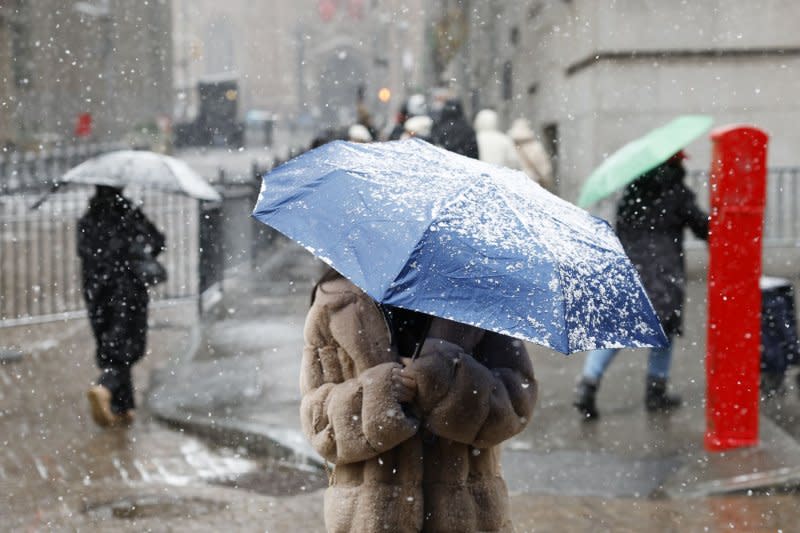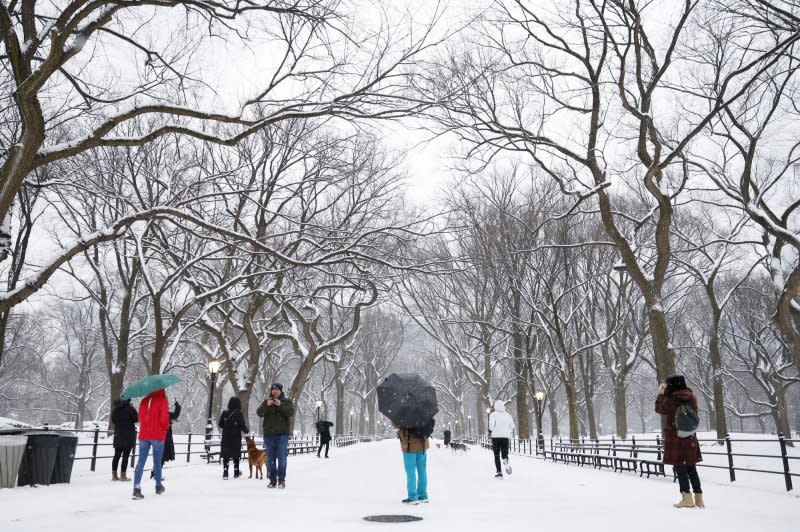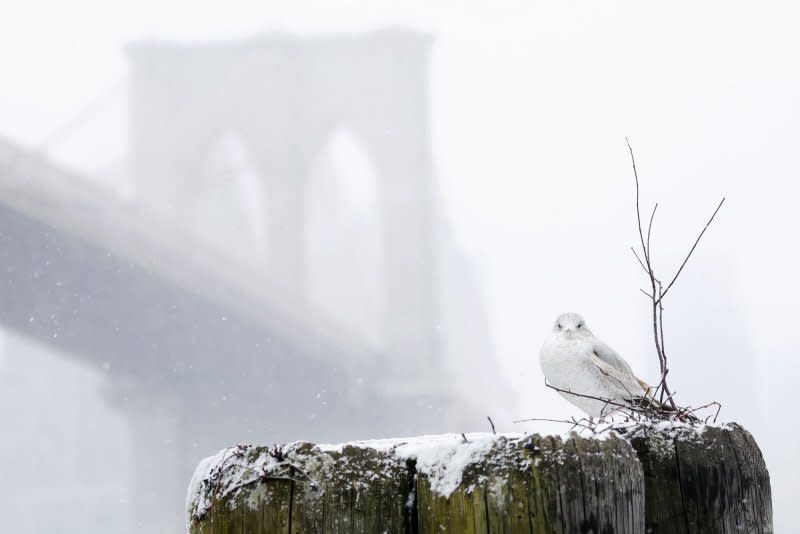Winter storms claim at least 70 lives nationwide

Jan. 21 (UPI) -- At least 70 people are dead nationwide after a week of blizzard conditions, icy roads and dangerously cold temperatures wreaked havoc on nearly every part of the country, according to forecasters, local officials and news outlets.
Officials say that number is likely to grow as they assess the death toll in parts of the country that are not accustomed to such extended periods of drastic cold, ice and snow and the high winds and dangerous roadways that came with them.
Nationwide, the weather remained unusually frigid on Sunday. Nashville hit a low of 3 degrees. Parts of Texas reached high temperatures in the 30s on Sunday, and Chicago and Milwaukee struggled to make it into the teens.
Forecasters predict the deep freeze will break Monday, with temperatures expected to rise nationwide, with some areas climbing to above average readings, according to the National Weather Service in Maryland.
Out West, heavy rain is forecast in California and wet snow predicted for the Sierra Nevadas. The rest of the West Coast is also expected to see rain early in the week.

Texas and the lower Mississippi Valley, which includes Louisiana, Arkansas and Tennessee, will also get wet weather.
The death toll from the dangerous winter weather was high and is likely to go higher.

Tennessee suffered an especially particularly high number of fatalities. At least 25 died of weather-related causes, including hypothermia, falls and traffic accidents, according to state health officials.
A Tennessee man died after he fell through a skylight while he was clearing snow from the roof of a business. On Tuesday in Pennsylvania, five women from the same family were killed by a tractor trailer just moments after they had gathered on the side of a snowy highway following a separate accident.

At least 11 people are reported to have died of weather-related causes in Oregon, including three who were killed when a large tree branch, which had been made weak by wind and ice, broke, taking down a live power line that killed two adults and a teenager.
Five people were reported to have died of weather-related causes in Kentucky.
"Everyone, please take time today to check on your family, friends and co-workers and make sure they have what they need to stay safe and warm," Kentucky Gov. Andy Beshear said in a statement on Friday.
Several states declared emergencies as a result of the dangerous weather conditions.
Traffic accidents often account for many of the deaths that happen in winter storms due to the icy roads. Hypothermia also accompanies the frigid temperatures and takes a particularly high toll on people without shelter.
Downed power lines, such as the one that killed three in Oregon, pose especially dangerous threats of electrocution.
Officials say cold weather fatalities are hard to count because the official cause of death can range from traffic accidents or hypothermia to heart attacks and falls, and it is often difficult for officials to say specifically what caused the death.
"It is very difficult to compile this sort of information because there is a lot of ambiguity," said Alan W. Black, an expert in climate and extreme weather at Southern Illinois University Edwardsville.
"There is still a lot of research to be done to understand the exact impact of winter weather in the U.S.," he added, "and I think that it is an extremely important topic to explore since we simply don't know the impact."
Experts say cold snaps like the one that swept the country this month are often deadlier than hurricanes, tornadoes and other dramatic weather events because people tend to underestimate the risks associated with extremely cold temperatures, which has a disproportionately large effect on low-income people, according to James Marshall Shepherd, a weather and climate expert at the University of Georgia.
People in the South can be especially vulnerable because those locations tend not to experience dramatically cold temperatures as often as places in the North and are not equipped to deal with them when they do.
He said extreme cold can have an especially devastating effect on people in low-income areas, and places that are densely populated or unaccustomed to the cold.
He explained that many residents may not have the necessary resources -- like reliable heat or warm clothes -- to stay safe.
"When everyone else gets a cold," he explained, "we get the flu."

 Yahoo News
Yahoo News 
